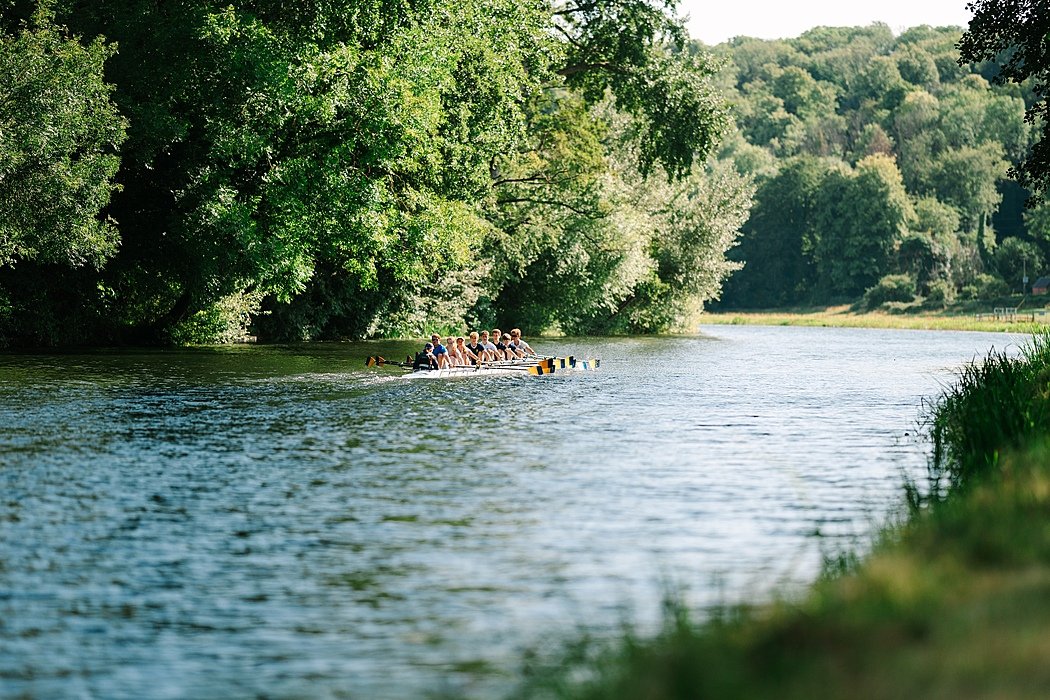
Our Articles • 18th August 2025
How to write an impactful personal statement for British boarding schools

Hello from Richmond,
Applying to a British boarding school is a big step – and one of the most exciting parts of the process is writing your personal statement. Think of it as your chance to introduce yourself to the school in your own words. Beyond school reports, this is where you get to tell your story: who you are, what excites you, and why you want to go to school in the UK. A strong personal statement is a wonderful opportunity to make a lasting impression – not by trying to sound “perfect,” but by being interesting, genuine, and even a little fun.
What to Include in Your Personal Statement
A great personal statement is more than a dry list of achievements. It should give the admissions team a clear picture of who you are as a person. Here are the areas you should cover:
1. You and Your Family
Begin by painting a little picture of your life at home. Who do you live with? Do you have siblings, and if so, what’s your role in the family? Maybe you’re the eldest and often help out with younger siblings; maybe you’re the youngest and have learned a lot from your older brother or sister. You can also share something about your parents and the family traditions, rituals, or hobbies that shape your daily life. For example, “Every Sunday we cook together as a family – that’s how I discovered my love for baking.”
2. Hobbies and Interests – and Why They Matter
Schools are not only interested in what you do in your free time, but why you do it. Don’t just write: “I play piano.” Tell the school what playing piano means to you. Does it calm you down after a busy day? Has it taught you patience and discipline? Or do you love performing in front of an audience? Be specific and reflective. The same goes for sports, art, coding, or even watching documentaries or reading about topics you find fascinating. Schools love to see curiosity in action – maybe you debate politics with your parents at dinner, or you binge-watch nature documentaries because you dream of becoming a biologist.
3. Positions of Responsibility
If you’ve taken on leadership roles, this is your moment to highlight them. Were you elected class speaker? Do you captain a sports team? Are you active in Scouts or a similar organisation? British boarding schools value students who take responsibility for others and show initiative. Even small examples count – perhaps you helped organise a charity fundraiser at school, or you tutor younger pupils in maths. These experiences show that you’re developing leadership, teamwork, and empathy.
4. School Life
Next, talk honestly about your current school. Which subjects do you enjoy most, and why? Which ones challenge you? Schools appreciate students who are reflective, not just boastful. For example: “I love history because I enjoy understanding how past events shape the world today. I struggle more with chemistry, but I’ve learned that careful preparation helps me get better results.” Writing like this shows self-awareness, resilience, and a growth mindset.
5. Why a British Boarding School?
This is the heart of your statement. Why are you excited about studying in the UK? What attracts you about boarding school life? Perhaps it’s the opportunity to be independent, to try new sports and clubs, to immerse yourself in English, or to meet friends from around the world. It’s also fine to share your worries: “I feel nervous about living away from home, but I hope the experience will help me grow more independent.” Schools appreciate honesty – and they want to see that you’ve thought about both the opportunities and the challenges.



How Long Should It Be?
A strong personal statement is at least 800 words long. That may sound like a lot, but once you start writing about yourself, your interests, your family, and your hopes for the future, you’ll find the words come naturally. The length matters because it gives you enough space to really reflect and explain yourself in depth – something short and rushed won’t make the same impact.
Authenticity is Everything
The most important rule: write it yourself. A personal statement must sound like you. Every school knows what a statement written by ChatGPT or copied from the internet looks like – and they can also tell when the style doesn’t match the level of a non-native English speaker. That doesn’t mean your English has to be perfect; in fact, schools expect grammar mistakes and imperfect phrasing. What matters is that your statement is authentic. Admissions officers want to hear your real voice, not a polished, artificial one.
And one more thing: most schools still expect your personal statement to be hand-written.
Final Thoughts
Writing your personal statement is a rare opportunity: it’s your chance to tell your story, in your own words, and make a boarding school see not just a student, but a unique individual full of potential. Be honest, be reflective, and be yourself. If you take the time to think deeply and write sincerely, you’ll give schools exactly what they’re looking for – a genuine glimpse of the person behind the grades.